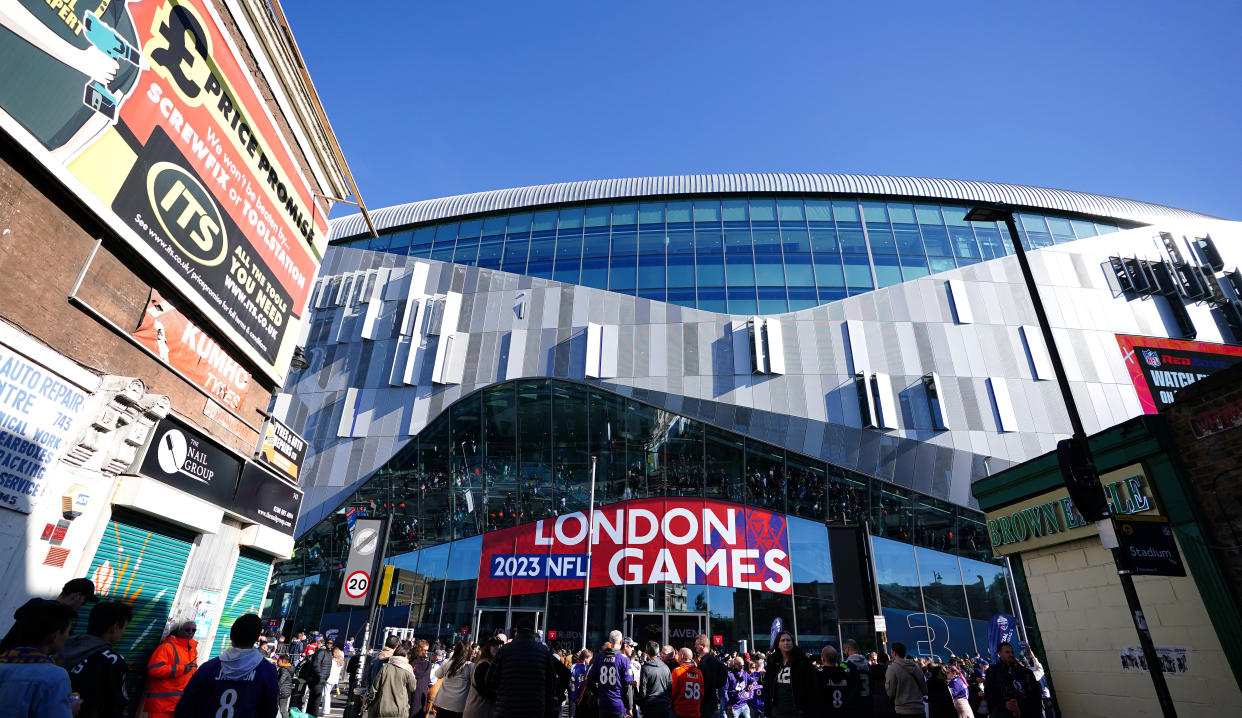The Super Bowl needs to stay in the United States
Roger Goodell turned heads when at a recent fan forum in England he said that staging the Super Bowl in London was something that “has been discussed” and “is not impossible.”
This time it wasn’t even tied to London getting an expansion franchise, which would at least make some sense. This was a stand-alone deal as the NFL has continued to play more games outside of the United States.
“As the International Series develops, maybe that is a possibility,” Goodell said.
NFL executive vice president Peter O’Reilly quickly clarified the league’s thinking by saying a London Super Bowl is “not a near-term focus of ours."
"The focus as it relates to the Super Bowl is on NFL cities in the U.S.,” O’Reilly said.
Good. Keep it that way.
Maybe Goodell just got caught up in the excitement British fans have shown for the NFL, but the Super Bowl needs to stay in the United States, especially if there isn’t a permanent franchise in London.
Sure, visions of Big Ben and Buckingham Palace serving as backdrops to the NFL’s championship game might sound fun. And bringing the game across the Atlantic would no doubt supercharge the league’s marketing efforts.
That shouldn’t be the point though.
The Super Bowl is an American holiday and the NFL is still an American sport — all 32 franchises are in the United States.
That means there are 32 communities that would love the massive economic infusion — and point of local pride — that the Super Bowl brings each February. It was estimated last season’s game brought some $1.3 billion to Arizona, not counting publicity for the region.
Not every NFL city can host the Super Bowl. Green Bay, for example, can’t handle the influx for a regular-season game, let alone something of this scale. Weather concerns remain for non-domed facilities after the 2014 game played at MetLife Stadium in New Jersey avoided a major snowstorm by just one day.
There are at least 15 NFL cities that can or have hosted the Super Bowl — Atlanta, Arlington, Detroit, Houston, Indianapolis, Jacksonville, Los Angeles, Miami, Minneapolis, New Orleans, New York/New Jersey, Phoenix, Santa Clara, Tampa and Las Vegas, which gets the big game this year.
It is one of the few ways the NFL can give back to the cities, states, fans and taxpayers who have provided incredible support in its growth through the years. The endless parade of newly constructed, billion-dollar stadiums isn’t ending anytime soon and giving those cities a Super Bowl — if logistically possible — is a way to offset the costs.
To see that go to London so the league can try to find new fans would be an insult.

And while the NFL may not want to go back to, say, Detroit or Minneapolis because it doesn’t mesh with the celebrity-driven party circuit or the corporate crowd, well, who cares? Real fans are everywhere.
One of the beauties of the Super Bowl is the financial impact spreads out. It’s not just major hotels or convention centers but Uber drivers and bartenders and locals who rent their house out on Airbnb.
It’s not like being an NFL fan is getting cheaper, either. These days, to just watch the league on television requires streaming services and cable providers. Just about everyone in America is paying the NFL in some manner, even if they aren’t a fan.
The fact the NFL keeps moving regular-season games out of market is enough of an issue. When you ask fans and local governments to shell out to maintain a team, every weekend counts because every game is an economic engine. One less Sunday counts to the stadium workers and local restaurants.
The International Series began in 2007 with a single game in London. There are now five games played outside of the U.S. — which means five fewer chances for a home market to benefit from the league. It will likely continue to spread. After all, the NFL is now talking up Spain and Brazil to go with England, Mexico and Germany.
The Jacksonville Jaguars just returned from their annual game in London (they actually played two, but they were officially the road team against Buffalo) all while seeking $1 billion in public money to get a new stadium built back in Florida. Public support in Jacksonville has been understandably tepid. The annual London game is one reason, yet a possible permanent franchise move to England hangs over everything.
The NFL knows all of this. It knows what is gained globally and lost locally. It knows how important it is to give a little bit back to places where it has taken plenty. In 2015, it began moving the NFL Draft around as a mini-boost to less-preferred league destinations.
The Super Bowl remains the big prize, though.
“It’s a huge economic boost to those cities,” Goodell noted.
NFL cities. American cities.
Keep it that way.
